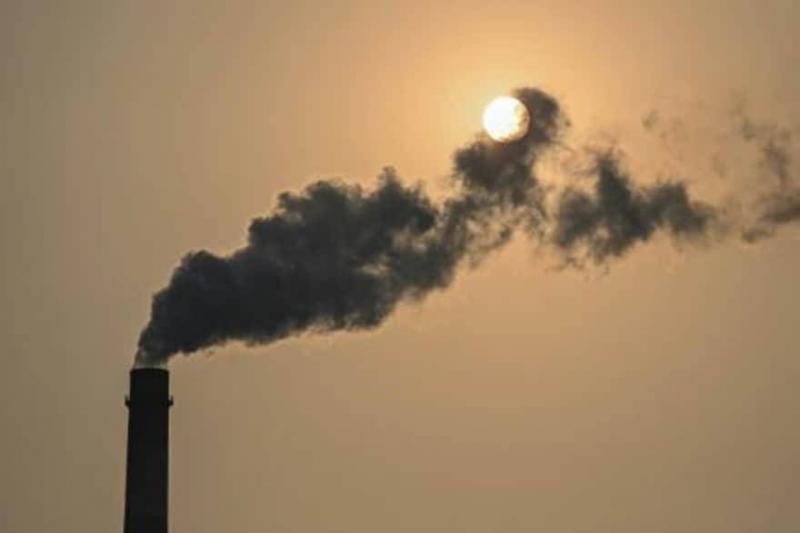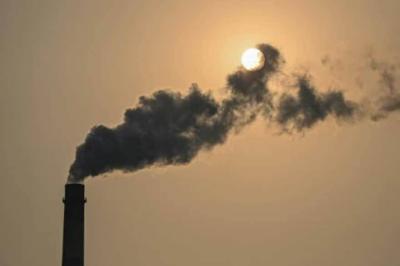On Tuesday, the United Nations warned that the recent commitments made by countries worldwide will contribute only a minimal reduction in emissions needed to keep global warming at 1.5 degrees Celsius. This warning came in a report released just before the "COP26" climate summit. Days ahead of the crucial 26th Conference of the Parties in Glasgow, which is vital for the long-term viability of the Paris Agreement on climate change, the report from the United Nations Environment Programme stated that national plans for reducing carbon pollution could be seen as "weak promises that have yet to be realized."
In the "2021 Emissions Gap Report," the United Nations Environment Programme calculates the gap between estimated emissions from countries and the levels required to maintain temperature increases within 1.5 degrees Celsius, the most ambitious target of the Paris Agreement. Summit organizers emphasized that countries are required to commit to keeping the Earth's temperature rise within 1.5 degrees Celsius through enhanced pledges to eliminate their carbon emissions. However, according to the United Nations Environment Programme, even the most ambitious recent plans from around 120 countries would raise global warming to 2.7 degrees Celsius.
On Tuesday, UN Secretary-General Antonio Guterres stated that the report shows the world is "still heading towards climate catastrophe." He added, "As world leaders prepare for COP26, this report serves as a loud alarm bell,” questioning “how many alarms do we need?”
Under the 2015 Paris Agreement, signatory nations must present new plans for reducing emissions—known as nationally determined contributions (NDCs)—every five years, each one more ambitious than the last. The United Nations Environment Programme noted that most recent commitments will cut expected emission levels by only 7.5 percent by 2030. It clarified that keeping global warming within 1.5 degrees Celsius requires a reduction in emissions by 55 percent. A 30 percent reduction keeps global warming margin at two degrees Celsius, which is the ceiling that countries signed on to the Paris Agreement committed to not exceeding.
Inger Andersen, Executive Director of the United Nations Environment Programme, stated, "To have a chance to reduce global warming to 1.5 degrees, we have eight years to halve greenhouse gas emissions."
The United Nations Environment Programme indicated that the COVID-19 pandemic resulted in an "unprecedented" decrease of 5.4 percent in global emissions in 2020. However, even this decrease was insufficient to narrow the gap between the current emissions trajectory and keeping global warming within 1.5 degrees Celsius. The UN program stated that countries need to reduce their emissions of carbon dioxide and equivalent greenhouse gases by an additional 28 billion tons by 2030, with carbon dioxide emissions alone expected to reach 33 billion tons in 2021.
In a statement to AFP, Anne Ohlhoff, a contributor to the report, noted that "some progress" has been made since the signing of the Paris Agreement. She mentioned that "the new commitments cut 4 gigatons (4 billion tons) of carbon dioxide emissions annually by 2030 compared to previous commitments." However, she added, "but this is of course not enough. Overall, we are very far from where we need to be."
The report released on Tuesday stated that even if all net-zero emissions commitments are fully met, there is a 66 percent likelihood of keeping the temperature increase at around 2.2 degrees Celsius. Miles Allen, a professor of geological sciences at the University of Oxford, commented, "There is no will to reduce global fossil fuel consumption at the rate required to meet our climate goals."
The report concluded that “reducing methane emissions from fossil fuels, waste sectors, and agriculture could help bridge the emissions gap and reduce warming in the short term.” It considered that available technical measures could cut human-made methane emissions by 20 percent annually, at negligible or no industrial cost. The report also highlighted that the plans put forth by 49 countries for net-zero emissions are "vague and not included in the intended contributions."
Joanna Depledge, a researcher at the Cambridge Centre for Environment, Energy, and Natural Resources, asserted, "Overall, the net-zero target must be accompanied by immediate action towards ambitious goals for 2030, or it will remain merely a statement of intent."




